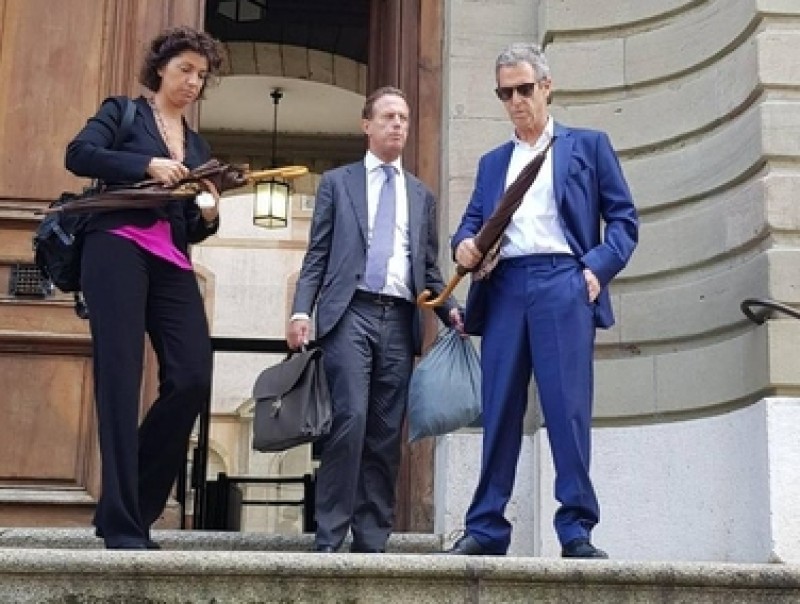Two of Steinmetz’s partners - one of them a middleman who has already faced jail time for obstructing justice in the U.S. - also lost their appeals. They were found complicit in a “corrupt enterprise”. The ruling was issued March 28, but only announced on Tuesday.
Steinmetz, 67, did, however, see his original five-year prison sentence reduced to three years, of which half was converted to a suspended sentence. The sentences for the middleman, Frédéric Cilins, and Sandra Merloni-Horemans, who served as an assistant and director of many of Steinmetz’s companies, were also greatly reduced, and converted from custodial to suspended sentences. Steinmetz and Merloni-Horemans also had convictions for forgery reversed.
A spokesman for Steinmetz, Marc Comina, said the ruling was “unfair and politically motivated” and that “Geneva has no legitimacy to judge him.”
Steinmetz’s lawyer in Israel, Eitan Maoz, said that “We will continue to fight to prove Mr. Steinmetz's innocence and will appeal to the Swiss Federal Court”, the country’s top court. “Mr Steinmetz is the victim of an ugly false plot,” he added.
Agathe Duparc, an investigator at Swiss anti-corruption group Public Eye, called it a “historic verdict” that “sends a strong signal to white collar criminals” in Switzerland.
The corrupt scheme involved a “front company provided by one of the companies serving BSGR,” as well as a series of contracts with Mamadie Touré, wife of Guinea’s late president Lansana Conté, said the statement from the Genevan judicial authorities.
“Significant efforts were taken to hide the corrupt enterprise,” it said, including attempts to get Touré to destroy the incriminating contracts.
Beny Steinmetz Group Resources (BSGR) and an intermediary firm tied to Cilins, signed contracts with Touré between 2005 and 2010, promising her millions of dollars for her help in securing mining licenses covering Guinea’s southeastern Simandou mountain range, a Geneva courtfound in its original conviction of Steinmetz in January 2021. Touré, in turn, put pressure on the president to grant BSGR the licenses.
On December 4, 2008, BSGR was granted the rights to Simandou blocks 1 and 2, covering the northern half of the range. Although BSGR didn’t have to pay anything for the rights, it sold a 51% interest to major Brazilian miner Vale for $2.5 billion in April 2010.
Veteran opposition leader Alpha Condé was elected president in December that year, and launched a review of mining contracts as part of anti-corruption moves. Amid the inquiries - and as criminal investigations in Switzerland, the U.S. and Israel were under way - Cilins traveled to meet Touré in Florida, where she was now living, having bought several properties with her bribe payments.
Cilins promised her millions of dollars to destroy the incriminating contracts, unaware the FBI were watching. He was sentenced to two years in prison in the U.S., but has always insisted he was not acting under Steinmetz’s instructions—despite telling Touré the opposite in his recorded conversations.
Geneva’s public prosecutor’s office indicted Steinmetz in August 2019 and, after a trial delayed by COVID lockdowns and procedural hearings, the five-year sentence was handed down in January 2021. It took another two years for his appeal to be heard and for the verdict to be announced today.
Alongside the jail sentence, Geneva’s Court of Justice upheld the decision that Steinmetz must pay 50 million Swiss francs in compensation for the bribery. The state of Guinea, however, withdrew from the case as a civil party in 2019, and Duparc said it wasn’t clear to whom these funds would be paid.



